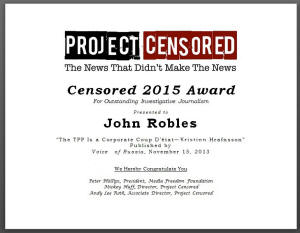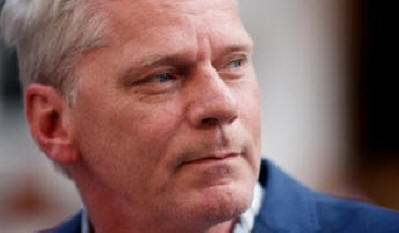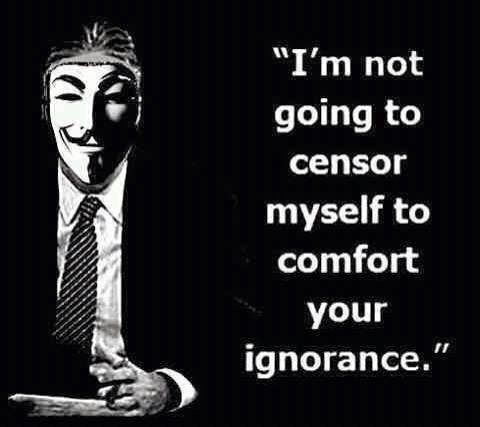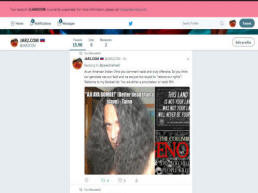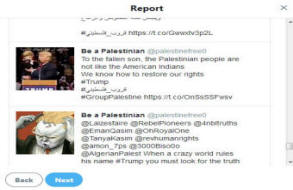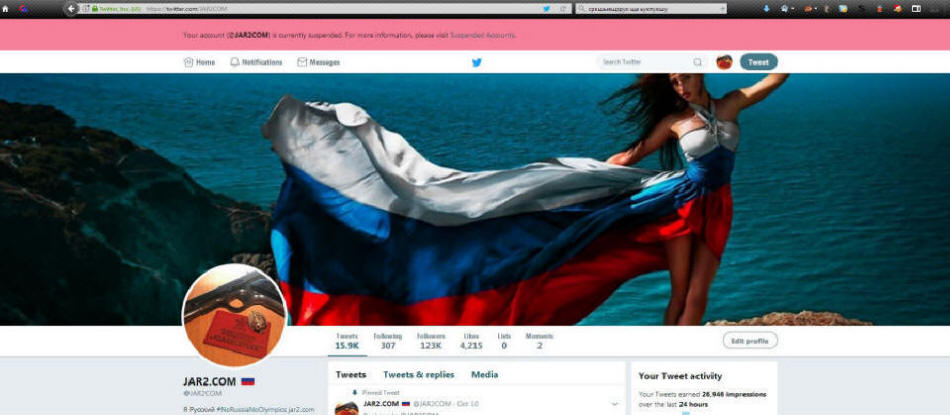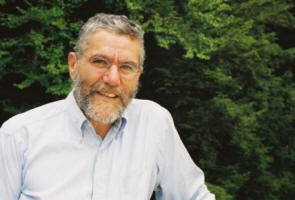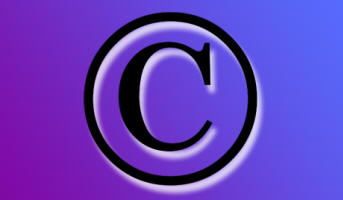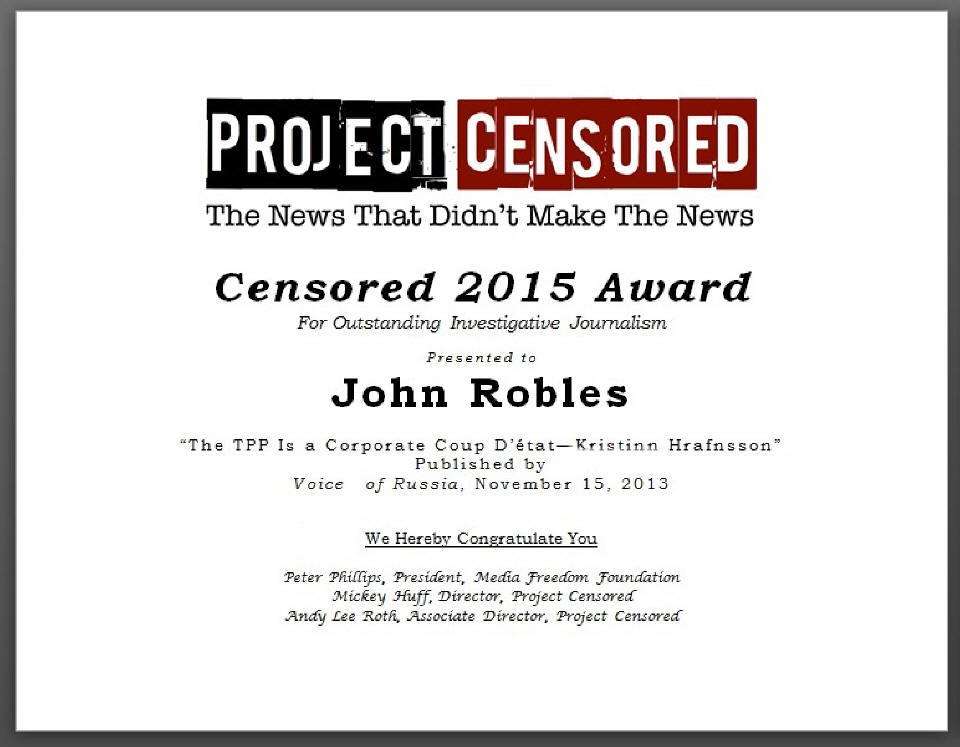
TPP - SOPA: The Globalist NWO's Dream Tool
![]()
![]()
![]()
![]() Award Winning Interview With WikiLeaks
Co-Founder Kristinn Hrafnsson
Award Winning Interview With WikiLeaks
Co-Founder Kristinn Hrafnsson
Dr Carl Jensen the Founder of Project Censored died on July 25 2015 soon after I received the above award RIP. Then my son was ordered arrested by the US Embassy and the CIA, then Michael Ratner died, then scores of WikiLeaks associates, then Nathan Folks http://www.jar2.com/Topics/Boston_Bombing.html with whom I exposed the Boston Bombing False Flag with was poisoned and, there were a slew of others, not long ago Edward Herman http://www.jar2.com/Interviews/Edward_Herman.html , whom I exposed the first Srebrenica massacre with also passed away.
The transparency site WikiLeaks has recently released part of a secret trade
agreement called the Trans Pacific Partnership Treaty (TPP) being
fast-tracked through the US Congress by US President Barrack Obama. What is
astounding about the treaty, other than the fact that it is being pushed
through without allowing US Congressmen access to the full text, is that
only 3 people in each of the 12 prospective signatory countries, have access
to the full text. Given that the treaty will affect countries which account
for about 40% of the world GDP and over 800 million people, the fact that
600 corporate bankers are effectively hi-jacking the governments of the
member countries and that only 3 people in each country know the full
contents of the treaty, the document is a true step towards Corporate
Fascism. The Voice of Russia spoke to WikiLeaks number 2 Kristinn Hrafnsson
on the section of the TPP which they released.
Hello, this is John Robles. I'm speaking with WikiLeaks number two Kristinn
Hrafnsson, he is the official spokesperson for the Wikileaks Organization.
This is Part 1 of a three part interview. This interview can be found on our
website at Voiceofrussia.com in the near future.
Robles: Hello,
sir.
Hrafnsson: Hello,
John, thanks for having me on your program.
Robles: And
thanks for agreeing to speak with me again. It's been a while, a lot of
things are going on. WikiLeaks has just released a very important, very
timely and unfortunately very secret document that will affect many people
all over the world. Can you tell listeners exactly what the TPP is in the
part that you released and why it's so important?
Hrafnsson: Yes.
It's no wonder that people have not heard so much about this TPP. This is a
treaty being drafted called the Trans-Pacific Partnership Agreement often
referred to as TPP between 12 nations that are in the Pacific Area: they are
Canada, Mexico, the United States, Peru, Chile on the American side and in
the eastern side you have New Zealand, Australia, Vietnam, Brunei and Japan,
Malaysia as well, now 12 nations in total and this is quite a package
because these 12 nations they have combined gross domestic product, GDP
which account for 40% of the GDP of the entire world.
We are talking about a third of all world trade in this context and 800
million people.
This has been going on with drafting of this so called free trade agreement,
and I'll tell you later why refer to it as 'so called', for almost four
years, in secrecy there has been extremely little coming out from these
proceedings, the instruction has been that those who are actually
negotiating this agreement they are signing a non-disclosure agreement and
are not allowed to tell anybody what is going on around the bargaining
table. However, what has been disclosed is that apart from a handful of
negotiators from each nation there have been 600 so called 'corporate
advisers' involved in the process.
Now these so called 'corporate advisers' are representatives of the interest
of those who have the biggest stake in this document. And those are the big
corporations that are seen of course to benefit primarily from this deal:
Monsanto, the big oil companies, Texaco, big pharma like Pfizer, the
entertainment industry; Disney, Hollywood.
So those are the entities who are behind the chairs of those who are at the
negotiating table and no wonder when we see what is in the draft of the
document that we released yesterday – of course the interests of big
corporations is at the forefront here and at the expense of the consumers.
Robles: Can
I ask you to comment while we’re on the topic, you mentioned 600 corporate
advisers are involved in this. Can you comment on a balance now? As I
understand there is very few people in each country that actually can see
the entire text. Can you comment on that imbalance?
Hrafnsson: That
imbalance of course is absolutely absurd, and it is a good example of what
is at stake here and what is the aim here.
Now what exactly did we leak? We did get a hold of and have published the
most important chapter of this draft treaty, this is a chapter on
intellectual property rights. It's almost a hundred-page document, that aims
to this important issue and in it you can see the position on each and every
clause from each and every negotiating nation. That is what is included in
this draft.
Just to put this the context, where this treaty is at the Obama
Administration has put a great emphases of trying to get this through, and
implement it as soon as possible. The original aim was to get it actually
signed before the end of this year.
So this is at the final stages, even though of course you can see from the
draft which you can see on our website wikileaks.org, there is a lot of
disagreement but we are talking about of course, the total imbalance in
terms of strength on the one hand, you have the United States and on the
other you have small nations like Brunei, or nations with weak positions
like Vietnam and we don't know how they will end up in voting on this
treaty.
The Obama Administration on top of the secrecy has been trying to push
Congress to vote on a bill allowing this treaty to be fast-tracked through
Congress.
The fast-track measure means that the elected representatives will not be
allowed to discuss in details every aspect of this treaty, they will not be
allowed to introduce amendments to it. They will have only the right to say
yes or no, thumbs up or thumbs down to the treaty. No of course this has
been protested by actually representatives from both parties, both the
Democrats and the Republicans have protested this segment of the Congress as
being of course an undemocratic element.
There is now a push to get this through by Obama. He himself said last year
that the TPP raised the standards of a new age in his view and indicated
that this would be the benchmark for higher world trade and, keep in mind
that just this year discussions between the United States and the European
Union on a Trans-Atlantic Treaty, so the TPP, the Pacific Treaty, has big
implication on world trade.
Now we have not got into the content yet but it is quite shocking what you
will read there.
Just a reminder you are listening to an interview with Kristinn Hrafnsson
Robles: Please,
tell us, that number was only three members now, three members, or three
people in each member country, is that correct? Know the full text of this?
And people in the US Congress who are supposed to vote on it are not allowed
to see the entire document and this is a document that will affect, you said
800 million people, how is this possible?
Hrafnsson: It's
stunning. It's stunning that actually there has not been huge debate about
this. There has been an absolute silence in the mainstream media in most
headquarters about this, because people have (the corporate media) have
accepted the silence, the cloak of secrecy which is astonishing.
And the undemocratic nature of this process, both the writing of a treaty
and what is proposed in the US (which of course has been the "bastion" of
democratic values) to rush this through Congress without the Congressmen
having any chance to discuss, or get to know this document beforehand, is of
course astonishing.
Three people, that is my information as well, only three people from each
nation have access to the full document.
Robles: So
12 perspective members, right? So we have 36 people on Earth that are going
to make a decision that is going to affect almost a billion? Unbelievable.
Hrafnsson: Unbelievable
and put that into the context that 600 representatives of big corporations
had access to portions of it and have influenced the making of it.
Robles: I
asked you a year ago, maybe longer, if you thought that the United States
was sliding towards fascism. And I think we discussed once the definitions
of corporate fascism etc. What would you say now?
Hrafnsson: It's
very easy to see this entire process as coup d'état of corporations,
hijacking power, and basically bypassing natural democratic process.
It is, and of course if we can get a little later into the elements of what
this industry is, it is absolutely scary to see how influential they are in
this process.
And yes, I have often said that we are seeing a tendency towards neo-fascism
in the world. And this is definitely one of the indications that should go
into that argument.
Robles: I
see. A few minutes ago you mentioned some goals. What are the goals of the
entire document and the goals in particular of the part that WikiLeaks
released (that you released)and how is copyright going to be used to clamp
down on whistleblowers and increase the police state? So, the goals, and how
is copyright being used to manipulate and control basically?
Hrafnsson: Well,
what I said earlier was that I would refer to this agreement as 'so called
free trade agreement'.
What I mean by that is that free trade is of course the overall goal on
which this with that it was advertised with a very positive connotation,
this will create jobs and un-hinder market flow, cheaper products and all
the positive benefits. But the fact and the matter is that of the 29
Chapters in this treaty, only 5 has the right influence and talk about the
actual free trade and tariffs.
That is the indication of what it is really is. This is not about free trade
and about consumer benefits. This is about corporate benefits and about
their power takeover of this important market, a third of world trade, 40%
market that has 40% of the world GDP.
A few examples of what this overall treaty entails, it entails a very strong
enforcement mechanisms.
One proposal there of course is to create a supranational body, a tribunal
where disputes will be settled with this regard to internal laws. This will
be above the High Court of each and every country.
In this tribunal we will have corporate lawyers sitting, we will have
corporations suing governments not just because they are not abiding by the
treaty and causing some obvious harm, they have the ability to sue
governments for prospective loss of the future.
Robles: To
sue governments for prospective loss? So this is not actual loss and that's
incredible.
Hrafnsson: So
this entails of course a massive giveaway of national sovereignty in each in
its country. And we have seen the past examples of how these so called
tribunals of settlement have been used and abused in the past.
I can give you one example, that your people might remember. It is when the
Ecuadorian Government, Ecuadorian entities were suing Chevron former Esso Co
for damages in their oil production in Ecuador. And the Supreme Court in
Ecuador actually decided on behalf of Ecuadoreans, and I believe that they
were granted like $8 billion.
This took almost two decades to finalize in Ecuador. But the old agreement
at the oil company had from decades way back was that they could actually
take matters to a tribunal to settle. And in the tribunal where corporate
lawyers sat, the damages entitled to the indigenous people in Ecuador was
taken off.
So we have many examples of these kinds of measures when we have tribunals
settled. This is of course, and can only be seen, as a giveaway of the
national sovereignty.
Just a reminder you are listening to an interview with Kristinn Hrafnsson
Robles: Can
I ask you a question? Regarding the Ecuadorian case I believe it was Exxon,
wasn't it and all the executives had to leave and they don't dare set their
foot in the country again because they might be fined, right?
Hrafnsson: Yes.
And I think I wrongly referred to Texaco in that context.
Robles: You
said, these corporations they will be able to sue governments. Now we are
talking about 12 member countries, are you saying that these 12 members
could they sue the governments of all the over 200 countries in the world?
Or could they just sue member countries?
Hrafnsson: No,
this will be implemented within the context of this treaty, where
corporations could sue governments in member countries.
So the major elements that are of course in this so-called free trade
agreement are of course neoconservative measures that we have seen
elsewhere.
We are talking about major implications for those countries that would be
signatories to these treaties. I can give an example – state-run entities of
course would not be welcomed. And if you consider a country like Vietnam
where about 40% of the nation's economy are within state-owned enterprises.
So how will that effect Vietnam? What effect will it be on the country that
is stricken down.
Another example Japanese farming is kept alive because of protective
measures, the Japanese farmers have very serious considerations about this
treaty because of course protective measures will not be allowed.
They maintain that this will be an attack on cultural values, the
healthiness of their food etc. when they will have the inflow of food
products from other countries.
We have many examples of these kinds and the biggest reservations what you
can see from the text of the treaty are of course from the countries who are
in the weaker position because they have been trying to have protective
measures both to protect some segments of the economy but also national
insurance and healthcare, etc which will be affected if this comes into
force with all the measures that the United States will have to push through
there.
We will see the effect on banking that will be not allowed to put into laws
in these countries measures to limit the free range of the bankers anything
likely to last, legal acts anything that will curve derivatives and other
measures used in the financial markets. This is of course the crisis and
problems it will not be allowed to put anything in place in other countries
of such nature, it will be considered a trade barrier.
That was the end of part one of the interview with Kristinn Hrafnsson, the
official spokesperson for WikiLeaks, you can find next part of this
interview on our web site at voiceofrussia.com and as always I wish you the
best wherever in the world you may be!
![]()
![]() Trans Pacific Partnership is like SOPA on Steroids – Kristinn
Hrafnsson
Trans Pacific Partnership is like SOPA on Steroids – Kristinn
Hrafnsson
Originally published here: as a corporate coup d'état
WikiLeaks recently released part of a secret trade agreement called the
Trans Pacific Partnership Treaty (TPP) which is described as
a corporate coup d'état,
is being effected in secret and will affect over 800 million people. The
reaction to this leak has been very positive according to Kristinn Hrafnsson
the number 2 at WikiLeaks who
spoke to the Voice of Russia about this important treaty which he said has
been described as an international SOPA on steroids. Among opponents of the
supra-natural treaty are Doctors Without Borders, who say the Treaty will
cause untold deaths and suffering in poorer countries because it will
effectively end generic medicines and even patent certain medical
procedures.
This is part 2 of a longer interview in progress. You can find the previous part of this interview and the following on our website, at voiceofrussia.com in the near future.
(Photo: Kristinn Hrafnsson) Julian Assange and Kristinn Hrafnsson
Hrafnsson: If
you look specifically at the chapter that we released – the intellectual
property rights – people will often associate that simply with the music
industry and illegal downloads of films etc, but this has a much bigger
scope.
We are talking about patents on genetically modified products, measures that
will benefit Monsanto. We are talking about a patent on medical procedures.
We are talking about extending the lifetime of patents on drugs which will
make it of course much more difficult to produce cheaper generic drugs,
which are essential for poor countries and the healthcare.
On top of that, of course, we are talking about measures, with the Disney
Corporation and the entertainment industry once in there, which is a blatant
attack on the Internet freedom.
There will be a duty, according to clauses in this draft, of all member
states to put into law very Draconian and strict measures to hunt down
anybody who is illegally downloading. And the Internet service providers
will be ordered to monitor, and they will be held liable for anything that
will flow through them.
So, you will be creating in every country a police force which will have to
be hunting down those who are exchanging recipes or what have you.
This is so strict. If I have a website and somebody posts on my website or
my blog, or my Facebook page material that is breaching some copyright laws
in other country, I will be held liable for that. And according to the
treaty each and every country must pursue the law with much vigilance.
Now, I don’t know if you are familiar with the former attempts to put these
kinds of measures into national law.
Robles: You
mean like SOPA and the other ones?
Hrafnsson: Yes.
Now, those who are very deeply familiar with SOPA, which was basically
brushed off a table after people vigorously protested against it in the US.
In the TPP you have what people have been referring to as SOPA on steroids.
So, what you have there – measures that were deemed to be absolutely
unacceptable on a national level is being secretly put as a Trojan horse
into a supranational-international treaty where it is dominated and
enforceable through an international-supranational tribunal. And this is
done in total secrecy.
This is of course causing outrage amongst all the members who were fighting
against SOPA to see that this is coming back again on a more serious level
in a secretive international treaty to which, in the case of the US, the
representatives will have a very limited power to actually familiarize
themselves with it or vote on each and every measure individually.
So, you can see that when I’m talking about that corporate coup d'état –
that is exactly what I’m referring to.
Of course, it’s just out and it takes quite a bit of time for people to
familiarize themselves with the content of it. But we already have
organizations, like the Electronic Frontier Foundation, protesting this
heavily.
We have Doctors Without Borders protesting the measures relating to the
pharmaceutical industry which basically, they say, will cause deaths in
countries, because it will create a total inability to get access to cheaper
drugs in the future.
Robles: This
is unbelievable, I mean what we’ve seen so far. Can you give us a hint of
will we be seeing more?
Hrafnsson: We
try our best as a publishing organization to have action speaking for
itself. And it is very positive that we are seeing a strong and growing
reaction to the release. And actually, this time around it is positive that
people are focusing on the release itself rather than the leak. That is a
good process.
Robles: Yes,
that is very good. It is very positive. Is this just another attempt for the
US to try to gain complete control of the world? Maybe that’s a bit extreme
way to put it, but it sounds very much like a tool that would allow them to
control the world. I mean, once you control the trade and the money and the
flow of thought, and ideas – you control everything.
Hrafnsson: I
think these questions are rather taking it away from the national level
because we now have of course supranational and international corporate
entities which are the real threat instead of nation states.
Of course many of them which we have discussed here and in this instance, in
context of this treaty -these are American based companies. They have no
national interest, they have no national values, they have simply one aim in
mind, that is to increase the growth and at someone's expense.
Robles: Can
you comment, to American patriots for example, who fear that their
government has been taken over by corporations? Is this the evidence for
that?
Hrafnsson: Well,
we have discussed the process here which has been pushed by the Obama
Administration which everybody thought would be somewhat different from the
Bush Administration.
We of course just see that this is being pushed through undemocratically
without any consideration for the consumers and for the individuals in the
US, elsewhere in other countries. Yes, I would have to agree that those who
would say that this is an evidence that the corporations basically hijacked
power in Washington.
Robles: I
see. What would you say to people out there, what can we do about this?
What's your advice, Kristin?
Hrafnsson: Well,
we are a publishing organization, we are not working in any other activist
field, we feel that information should be free. There is an urgent need to
fight these secrecies that are overwhelming.
Our tool is to urge whistleblowers to leak information and to get everything
out in the open. And they will be permitted to be on that track. And we must
hope that when information flows to the citizens, that they will take action
and actually change this course.
That of course is what we aim for – that is the democratic way. It is very
shocking if we are getting to the conclusion: to see how subservient the
corporate media in the countries that we are discussing here have been
towards this. Only about ten days ago the New York Times, board of editors
issued an editorial praising the TPP, praising the initiative and nobody at
the New York Times had seen anything out of the discussions.
They had a lot of condemnation from many organizations. Who said: “How on
Earth can you support anything, that you don't know what it entails.”
And that is a valid argument. I have to say that in the hours since our
release I have been monitoring how the story has been spinning throughout
the world, in various media.
It has been quite obvious that the corporate media, most of the big
corporate media in the US, for example, have been ignoring the story.
The New York Times hasn't told the story of a leak, which is astonishing.
For the Washington Post has not run a story it took a long time for the wire
services to wake up.
That is worrying for me as a journalist to see that the corporate media in
the largest country in the context of this 12 nation treaty proposal are not
covering this important leak, pertaining to so much interest for the
individuals in the country.
Robles: I
think this is more globally important, not derive the importance of the
previously expected. I think this affects everybody, it affects even more
people than for example the Afghan war logs, wouldn't you agree?
Hrafnsson: Every
leak is unique and it has repercussions. Interesting enough and I think it's
important to keep in mind – the Afghan leaks totally changed the perception
of what the Afghan War was about.
I believe that before we showed the documents, the 90,000 documents, the
field reports from Afghanistan in 2010, that general perception was that
everything had been going in a good direction in Afghanistan and the war had
been won. And things had been going swell. But the opposite was revealed at
a great expenditure in human suffering and in terms of monetary value we see
that enterprise as a total failure now.
Robles: Now
we have this economic steamer that is trying to pull on us?I'm
sorry, go ahead.
Hrafnsson: I'm
certain that when people look back in the future to our current times, they
will see 2010 as a turning point.
With the WikiLeaks revelation that year which was of Earth-shaking
magnitude, there was a fundamental change. And we changed I believe, we gave
people hope that through information there was a chance to change the course
that the world was in, this was a very negative one.
I believe people will see in the future that in 2010 WikiLeaks opened up an
important door and others have walked through the door after this- Edward
Snowden if we mention one, other leakers.
Now we have this treaty. And I can promise you whether it would be through
us or through other venues, there will be more leaks, there will be more
whistleblowers. Courage is contagious, we are on new track. And if this is
played out right it is for the better of mankind.
Robles: Kristinn,
if there is somebody listening I can’t nominate your for a Nobel Peace Prize
or WikiLeaks or Julian. If I could, I would take Obama's Peace Prize and
give it to you. You guys deserve it, seriously. I mean that from the bottom
of my heart.
Hrafnsson: Let
me just mention if we are coming to conclusion, we would really appreciate
that donations from individuals, we are of course reliant on people to
donate to us and however small amount would be appreciated. If you go to our
website and see where and how people can donate we would appreciate, there
is our only source of income.
Robles: Can
people from Russia donate?
Hrafnsson: People
can now donate. We have had a victory in our fight against the credit cards
giants – Visa and Mastercard.
Donations are possible through those venues, through a number of pay
ways. This was after Supreme Court victory in Iceland a few
months ago. Of course we have and we will continue to get these companies to
pay us compensation for three years of banking blockade. This is totally
unacceptable.
Robles: Is
Visa going to pay for the damages or is that still going up for appeal?
What's going on?
Hrafnsson: The
damage or compensation procedure is a separate one which has been dealing
with separately. And that is just starting. And for the sake to make sure
that this never happens again such an arbitrary politically motivated
banking blockade upon a publishing organization we must see this to the end.
Robles: Yeah.
Are there instruments in there that they are trying to push through to go
after whistle blowers internationally and in a harder way?
Hrafnsson: It
is not included in a direct manner there. It has to be analyzed in details
and of course any attack on Internet freedom is an indirectly attack on
freedom of speech and the ability of individuals to talk securely and
communicate securely and freely on the Internet. That would apply to
journalists and whistleblowers and affect them in a direct manner.
Robles: Ok.
Kristinn anything else you want to finish up with?
Hrafnsson: No,
I think we've covered quite a good aspect in those minutes about this very
important topic and I think the discussion is just beginning.
Robles: I
mean that about the Nobel Peace Prize, really, truly.
Hrafnsson: I
don't know if we actually are that keen on being standing on the same
platform as President Barack Obama.
![]()
![]() PART THREE IS MISSING AND WILL BE RESTORED
PART THREE IS MISSING AND WILL BE RESTORED
![]()
![]() Obama Attempting to Ram Through Unconstitutional
Secret Treaty
Obama Attempting to Ram Through Unconstitutional
Secret Treaty
By John Robles, 14 November, 2013 11:34
WikiLeaks has released part of a larger document concerning a new economic
treaty that is alarming in its scope and implications and according to
WikiLeaks is the largest economic treaty in history. The secret
Trans-Pacific Partnership Agreement is an instrument that will radically
strip away rights and seek to completely control almost every area that is
of interest to the large corporations that are going to be the main
beneficiaries. The closeness with which US President Obama is working with
the corporate interests behind the treaty to ram it through the US Congress
with almost no debate or chance for oversight is egregious in itself and
further shows just how closely connected corporations like Chevron,
Halliburton and Monsanto are with the US Government. Such a document proves
without a shadow of a doubt that the US Government has been annexed by huge
corporations and the lines between monied interests and the government that
was supposed to serve the people have all but disappeared.
If there was ever a time for Americans to stand up and take their country
and their government back from the corporations this is it, because once
this treaty is passed with all of its global implications the common people
in countries that will be controlled by it will be just an inch away from
becoming slaves of the state and the corporations.
Countries that sign it also need to beware because one the treaty is sign
they will have effectively given up a very large and significant part of
their sovereignty to the United States.
WikiLeaks Press Release:
Secret Trans-Pacific Partnership Agreement (TPP)
Today, 13 November 2013, WikiLeaks released the secret negotiated draft text
for the entire TPP (Trans-Pacific Partnership) Intellectual Property Rights
Chapter. The TPP is the largest-ever economic treaty, encompassing nations
representing more than 40 per cent of the world's GDP. The WikiLeaks release
of the text comes ahead of the decisive TPP Chief Negotiators summit in Salt
Lake City, Utah, on 19-24 November 2013. The chapter published by WikiLeaks
is perhaps the most controversial chapter of the TPP due to its wide-ranging
effects on medicines, publishers, internet services, civil liberties and
biological patents. Significantly, the released text includes the
negotiation positions and disagreements between all 12 prospective member
states.
The TPP is the forerunner to the equally secret US-EU pact TTIP
(Transatlantic Trade and Investment Partnership), for which President Obama
initiated US-EU negotiations in January 2013. Together, the TPP and TTIP
will cover more than 60 per cent of global GDP. Both pacts exclude China.
Since the beginning of the TPP negotiations, the process of drafting and
negotiating the treaty's chapters has been shrouded in an unprecedented
level of secrecy. Access to drafts of the TPP chapters is shielded from the
general public. Members of the US Congress are only able to view selected
portions of treaty-related documents in highly restrictive conditions and
under strict supervision. It has been previously revealed that only three
individuals in each TPP nation have access to the full text of the
agreement, while 600 'trade advisers' – lobbyists guarding the interests of
large US corporations such as Chevron, Halliburton, Monsanto and Walmart –
are granted privileged access to crucial sections of the treaty text.
The TPP negotiations are currently at a critical stage. The Obama
administration is preparing to fast-track the TPP treaty in a manner that
will prevent the US Congress from discussing or amending any parts of the
treaty. Numerous TPP heads of state and senior government figures, including
President Obama, have declared their intention to sign and ratify the TPP
before the end of 2013.
WikiLeaks' Editor-in-Chief Julian Assange stated: "The US administration is
aggressively pushing the TPP through the US legislative process on the sly."
The advanced draft of the Intellectual Property Rights Chapter, published by
WikiLeaks on 13 November 2013, provides the public with the fullest
opportunity so far to familiarise themselves with the details and
implications of the TPP.
The 95-page, 30,000-word IP Chapter lays out provisions for instituting a
far-reaching, transnational legal and enforcement regime, modifying or
replacing existing laws in TPP member states. The Chapter's subsections
include agreements relating to patents (who may produce goods or drugs),
copyright (who may transmit information), trademarks (who may describe
information or goods as authentic) and industrial design.
The longest section of the Chapter – 'Enforcement' – is devoted to detailing
new policing measures, with far-reaching implications for individual rights,
civil liberties, publishers, internet service providers and internet
privacy, as well as for the creative, intellectual, biological and
environmental commons. Particular measures proposed include supranational
litigation tribunals to which sovereign national courts are expected to
defer, but which have no human rights safeguards. The TPP IP Chapter states
that these courts can conduct hearings with secret evidence. The IP Chapter
also replicates many of the surveillance and enforcement provisions from the
shelved SOPA and ACTA treaties.
The consolidated text obtained by WikiLeaks after the 26-30 August 2013 TPP
meeting in Brunei – unlike any other TPP-related documents previously
released to the public – contains annotations detailing each country's
positions on the issues under negotiation. Julian Assange emphasises that a
"cringingly obsequious" Australia is the nation most likely to support the
hardline position of US negotiators against other countries, while states
including Vietnam, Chile and Malaysia are more likely to be in opposition.
Numerous key Pacific Rim and nearby nations – including Argentina, Ecuador,
Colombia, South Korea, Indonesia, the Philippines and, most significantly,
Russia and China – have not been involved in the drafting of the treaty.
In the
words of WikiLeaks' Editor-in-Chief Julian Assange, "If instituted, the
TPP's IP regime would trample over individual rights and free expression, as
well as ride roughshod over the intellectual and creative commons. If you
read,
write, publish, think, listen, dance, sing or invent; if you farm or consume
food; if you're ill now or might one day be ill, the TPP has you in its
crosshairs."
Current TPP negotiation member states are the United States, Japan, Mexico,
Canada, Australia, Malaysia, Chile, Singapore, Peru, Vietnam, New Zealand
and Brunei.
A final step to Corporate Fascism
With the US debt at over $200 trillion dollars and their grasp on control
slipping, Obama and the corporations that have taken over the US Government
are attempting to do anything they can to cling to power and enslave the
populace.
The fact that the heads of the governments who are a party to the TPP, would
attempt to sign such an all encompassing treaty without the knowledge of
their respective governments and their people is a something unheard of an
unprecedented in history.
The complete lack of interest in the peoples of their countries and the
readiness which the parties are set to effectively give up their sovereignty
to the United States should have the populace taking to the streets, which
is why the treaty is being done in secret.
One has to ask some serious questions here such as: What kind of country or
government attempts to sign all encompassing treaties with other governments
in secret? And when did the corporations become our owners and the owners of
our governments and constitutons?
The views and opinions expressed here are my own. I can be reached at jar2@jar2.com.
![]()
![]()
![]()
![]() Secret TPP Agreement Full Text
Secret TPP Agreement Full Text
Full text: Trans-Pacific Partnership Agreement
Secret Trans-Pacific Partnership Agreement
TPP like SOPA on Steroids – Kristinn Hrafnsson
TPP Corporate Coup D'état - Kristinn Hrafnsson
Obama's Unconstitutional Secret Treaty
![]()
![]()
![]()
![]() December 14th 2017: Net Neutrality in the US is Dead - Zionist Corporations
Win
December 14th 2017: Net Neutrality in the US is Dead - Zionist Corporations
Win
https://www.wired.com/story/after-fcc-vote-net-neutrality-fight-moves-to-courts-congress/
Twitter given 24 hours to delete Khodorkovsky's 'Open Russia' account
https://www.savetheinternet.com/net-neutrality-what-you-need-know-now

![]()
![]()
![]() After 7th Twitter Ban: I reject the New World Order! Will fight to death!
After 7th Twitter Ban: I reject the New World Order! Will fight to death!
![]()
![]()
![]() I Was Suspended for Protesting a Racist Anti-American Indian Post:
7th Time
I Was Suspended for Protesting a Racist Anti-American Indian Post:
7th Time
https://twitter.com/JohnARoblesIV
Files/CIA/Cody_Sodgres_CIA_Black_Ops.zip
http://www.jar2.biz/Banned_from_JA2_com/TWITTER_SCUM_BAN_JAR2_DMCA.html
![]()
![]()
![]()
![]() U.S. SOPA will lead to Internet lawlessness - Professor David Post
U.S. SOPA will lead to Internet lawlessness - Professor David Post
23 November 2011, 16:08
Interview with Prof. David Post, Professor of Law at the Temple University School of Law in Philadelphia, Pennsylvania and one of the authors of an open letter to the US House of Representatives signed by over 100 noted US law professors protesting the SOPA Act.
I would like to ask you a few questions regarding the Stop Online Piracy Act (SOPA). I understand you wrote an open letter to Congress regarding this act? Could you give the listeners a quick overview on what this act is and what it means?
It would be part of the Copyright and Trademark Statute of the US. It is designed to combat primarily international, that is foreign sites – foreign in the US – that are infringing US copyrights. That would be mostly movies and recorded music and trademarks. And that can be anything like knockoff Louis Vuitton bags, or Nike shoes, or Apple computers, or things like that. The concern is that the way they go about this is like taking a sort of meat cleaver to a problem that would better be handled with a scalpel. There are a couple of fundamental principles that maybe interconnected with what it is – that is a single, global platform for communication. If you go to Moscow, if you go to Boston, if you go to Shanghai and you log on to the internet and you request access to a site you can get it because it’s a single network. So, one of the problems with this bill – I think a very fundamental one – is that it really contravenes that principle for the first time. If this bill were to pass, my service provider – whoever that might be – would be subject to an order and could have removed some listing from the domain tables and its users, someone in Seattle, or Mexico, or Brazil would have a different table listing all of the domains that I have. That’s no longer a single, global internet. If you multiply that by thousands and thousands of sites that may be targeted here, you’d get a very different looking internet depending upon how you are accessing it. It’s a kind of censorship that the US never had anything to do with, not unlike what other countries do, China being the most notorious example. The US has always been very critical of China’s attempts to block off portions of the internet from Chinese users. The US has taken a stand on this interference with the freedom of speech of the Chinese people. Now we would be doing the very same thing.
Anyone could be blocked just by someone making an accusation. Is that true?
Pretty much. The basic principle is that a rights holder, for example a music company, can go to court, present evidence that the site is infringing and the court can then seize the website, meaning that it can grab hold of, take possession of the domain name by issuing an order as if it were contraband, in effect. In virtually all of these cases it’s not hard to imagine that the website operator might even not know that this is happening. The idea is that he or she can drop what they’re doing and come to Washington DC or New York and fight this order. I think this is not going to happen. It’s impractical to expect people to be able to come to the US to a hearing to protest this, even though in many cases they may not in fact be infringing. Laws differ in different parts of the world and a site may be complying with the copyright law of the Netherlands or copyright law of Thailand, even though to a US judge it may look like they are infringing copyright. So, we have this situation when just on the say-so of the intellectual property rights holder some website operator in Thailand or in Russia wakes up one morning and suddenly realizes that nobody in the US can any longer get access to the site and they had no opportunity to be heard, no real opportunity to present opposing arguments. It’s not the sort of thing we ordinary do in the US. It plays fast and loose with important notions of due process. Before you can take away somebody’s livelihood, you have to give them an opportunity to be heard in court and, if they want, with a lawyer to make their arguments. This sort of run roughshod over that in a way that I think is a terrible precedent. We don’t have anything like this in the US law right now and I think, once this door swings open, there are going to be lots of people who are piling in to say “we got the same treatment too”. And then you have a sort of lawlessness on the internet that I think is very troubling to those of us who think that the internet is a very precious global resource.
So, basically, what you are saying is that this would allow the US to censor the world without allowing people to defend themselves?
Pretty much. I do not think that is an exaggeration that it would enable us, at least for the US internet and people who are accessing the internet from the US, to block out large portions of the internet simply because some intellectual property rights holder is angry at what is going on on some foreign site. I think it’s a fairly dreadful state of affairs. Many of the larger tech companies in the US have really for the first time taken a stand opposing this bill. There was a four page ad in the New York Times where tech companies like Google and Yahoo and Facebook and Twitter and eBay and all of the household names of these tech world giants spoke out opposing this bill. That’s a very important moment in the political history of the internet. I think we will look back at this as something of a turning point. I think it has turned many people’s heads.
![]()
![]()
![]()
![]() SOPA: The U.S. Censoring the Internet - John Robles
SOPA: The U.S. Censoring the Internet - John Robles
(Reddit by Aaron Schwartz Led to Over 600 million views)
19 November 2011, 13:25
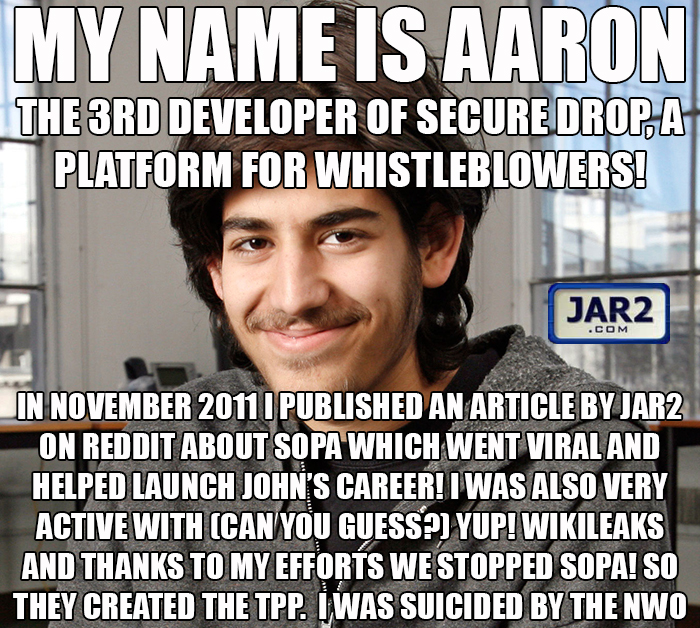
A Senate committee passed an act recently called the Protect IP Act but then, just as quickly, a Senator from Oregon, Ron Wyden, put the bill on hold because as he said, it would “muzzle speech and stifle innovation and economic growth.
A Senate committee passed an act recently called the Protect IP Act but then, just as quickly, a Senator from Oregon, Ron Wyden, put the bill on hold because as he said, it would “muzzle speech and stifle innovation and economic growth.”
The latest piece of internet blacklist legislation, known as the Stop Online Piracy Act (SOPA) in the House of Representatives, was introduced by the House Judiciary Committee Chairman Lamar Smith (R-Tex.) who claims it is for the purpose of shutting down foreign sites that post intellectual property created by U.S. firms, goes even further than the Protect IP Act.
The act would allow the US Justice Department powers to punish and shut down websites, both in the U.S. and anywhere in the world and go after companies that provide support for them, either technically or through payment systems
The US and the West have long criticized China for stifling dissent and for censorship but now they are not only joining China but they are taking censorship even further and attempting to censor the whole world.
The international implications of SOPA are worrying for as experts claim: it appears that the US is taking control of the entire world. The definitions written in the bill are so broad that any US user who uses a website overseas immediately gives the US the power to potentially take action against it and enable them to force ISPs to DNS-block any foreign site.
On a global scale it grants the U.S. Government far-reaching powers to go after Web sites which it claims are hosting copyrighted content. According to Public Knowledge a group which promotes a free internet “SOPA is significantly worse than its Senate cousin” because even sites that are not directly responsible for their content can be held liable and shut down, including sites such as search engines.
Not long ago the U.S. admitted that it was in a state of information warfare and that it was losing the war. So what do you do if you are losing the information war? You muzzle the messenger.
SOPA is not being rushed through to protect against copyright theft, the US is scared, the Arab Spring has become the Western Fall and the U.S. is going all out against those who dare to question the official US Government line, something that the internet inconveniently allows as the people use the internet more and more to find out the truth.
Record numbers of people are turning away from the mainstream U.S. controlled media and getting information from independent news sources online that are reporting on events.
You now hear people in the everyday situations mentioning things that only a few years ago were unknown outside of "conspiracy" circles. For example the collapse of building 7 on 9-11, the fact that the Republicans and Democrats are essentially the same political party, as are Labour and the Tories all choreographed for our consumption to maintain the pretence of democracy. Most people now know they have a government controlled by bankers and that NATO is attempting to dominate the world, we also know in advance that the West wants to invade Iran and take control of the Arctic by force.
The SOPA Act has been met with wide criticism and the list of those opposing it is long and sounds like a who’s who of the tech community. For starters Mozilla blacked out its name on its home page in protest, as did the social news site Reddit. The website Tumblr published a page against the act, and internet giants like AOL, eBay, Facebook, Google, Twitter and Zynga criticized Sopa by taking out a full-page advertisement in The New York Times.
At present, if Facebook, You Tube or other leading websites are found to be illegally hosting copyrighted material they are told to take it down. However the SOPA Act takes things to the next level and would allow the U.S. Government to block the website entirely.
Imagine if one day, for example, you could not access Google because it had been blocked for linking to an illegal mp3 file. In a blog post Google said SOPA “…would threaten innovation, jobs, and free expression”
In a collective statement put out by internet giants they say that the SOPA Act “…would encourage censorship, kill jobs and give US authorities unrivalled powers over the world's websites.” “We support the bills' stated goals – providing additional enforcement tools to combat foreign 'rogue' websites that are dedicated to copyright infringement or counterfeiting. Unfortunately, the bills as drafted would expose law-abiding US internet and technology companies to new and uncertain liabilities, private rights of action, and technology mandates that would require monitoring of websites," the firms wrote in a public statement.
On Tuesday, ten members of Congress signed a letter expressing concern over the bill, including nine Democrats and one Republican, Rep Ron Paul from Texas.
They write that the SOPA Act is "overly broad and would cause serious and long term damage to the technology industry, one of the few bright spots in our economy." The representatives say that passing the act would cause, “…an explosion of innovation-killing lawsuits and litigation."
Opponents say the bills could basically destroy the internet and destroy innovation by "using the same domain blacklisting technologies pioneered by China and Iran".
An open letter has also been sent to Congress and was co-signed by AOL, eBay, Facebook, Google, LinkedIn, Mozilla, Twitter, Yahoo! and Zynga, all of whom rarely agree on anything else, which says a lot.
The freedom of speech and expression and the uncontrolled dissemination of information online is a serious problem for Western political elites and the truth-spreading-culprits are many: 9-11 truth sites, intelligence sites, anti-war sites and foreign mass media sites like this one and many others, sites such as the aforementioned and many more, along with bloggers of every shape and form are out there on the net, exposing things, getting at the truth.
These truth seekers are in the millions and are exposing things like, torture, war crimes, political assassinations, media manipulation, government lies and corruption, who controls politicians, the fraudulent nature of the money system, police brutality (and uncensored video evidence to show it), eugenics, cover ups and the blacker intelligence operations. And they are spreading all of this information across the globe in seconds.
For the U.S. the truth has become an inconvenience and a dangerous threat to its power.
![]()
![]()
![]() Obama Attempting to Ram Through Unconstitutional Secret Treaty
Obama Attempting to Ram Through Unconstitutional Secret Treaty
14 November, 2013 11:34
WikiLeaks has released part of a larger document concerning a new economic
treaty that is alarming in its scope and implications and according to
WikiLeaks is the largest economic treaty in history. The secret
Trans-Pacific Partnership Agreement is an instrument that will radically
strip away rights and seek to completely control almost every area that is
of interest to the large corporations that are going to be the main
beneficiaries. The closeness with which US President Obama is working with
the corporate interests behind the treaty to ram it through the US Congress
with almost no debate or chance for oversight is egregious in itself and
further shows just how closely connected corporations like Chevron,
Halliburton and Monsanto are with the US Government. Such a document proves
without a shadow of a doubt that the US Government has been annexed by huge
corporations and the lines between monied interests and the government that
was supposed to serve the people have all but disappeared.
If there was ever a time for Americans to stand up and take their country
and their government back from the corporations this is it, because once
this treaty is passed with all of its global implications the common people
in countries that will be controlled by it will be just an inch away from
becoming slaves of the state and the corporations.
Countries that sign it also need to beware because one the treaty is sign
they will have effectively given up a very large and significant part of
their sovereignty to the United States.
WikiLeaks Press Release:
Secret Trans-Pacific Partnership Agreement (TPP)
Today, 13 November 2013, WikiLeaks released the secret negotiated draft text
for the entire TPP (Trans-Pacific Partnership) Intellectual Property Rights
Chapter. The TPP is the largest-ever economic treaty, encompassing nations
representing more than 40 per cent of the world's GDP. The WikiLeaks release
of the text comes ahead of the decisive TPP Chief Negotiators summit in Salt
Lake City, Utah, on 19-24 November 2013. The chapter published by WikiLeaks
is perhaps the most controversial chapter of the TPP due to its wide-ranging
effects on medicines, publishers, internet services, civil liberties and
biological patents. Significantly, the released text includes the
negotiation positions and disagreements between all 12 prospective member
states.
The TPP is the forerunner to the equally secret US-EU pact TTIP
(Transatlantic Trade and Investment Partnership), for which President Obama
initiated US-EU negotiations in January 2013. Together, the TPP and TTIP
will cover more than 60 per cent of global GDP. Both pacts exclude China.
Since the beginning of the TPP negotiations, the process of drafting and
negotiating the treaty's chapters has been shrouded in an unprecedented
level of secrecy. Access to drafts of the TPP chapters is shielded from the
general public. Members of the US Congress are only able to view selected
portions of treaty-related documents in highly restrictive conditions and
under strict supervision. It has been previously revealed that only three
individuals in each TPP nation have access to the full text of the
agreement, while 600 'trade advisers' – lobbyists guarding the interests of
large US corporations such as Chevron, Halliburton, Monsanto and Walmart –
are granted privileged access to crucial sections of the treaty text.
The TPP negotiations are currently at a critical stage. The Obama
administration is preparing to fast-track the TPP treaty in a manner that
will prevent the US Congress from discussing or amending any parts of the
treaty. Numerous TPP heads of state and senior government figures, including
President Obama, have declared their intention to sign and ratify the TPP
before the end of 2013.
WikiLeaks' Editor-in-Chief Julian Assange stated: "The US administration is
aggressively pushing the TPP through the US legislative process on the sly."
The advanced draft of the Intellectual Property Rights Chapter, published by
WikiLeaks on 13 November 2013, provides the public with the fullest
opportunity so far to familiarise themselves with the details and
implications of the TPP.
The 95-page, 30,000-word IP Chapter lays out provisions for instituting a
far-reaching, transnational legal and enforcement regime, modifying or
replacing existing laws in TPP member states. The Chapter's subsections
include agreements relating to patents (who may produce goods or drugs),
copyright (who may transmit information), trademarks (who may describe
information or goods as authentic) and industrial design.
The longest section of the Chapter – 'Enforcement' – is devoted to detailing
new policing measures, with far-reaching implications for individual rights,
civil liberties, publishers, internet service providers and internet
privacy, as well as for the creative, intellectual, biological and
environmental commons. Particular measures proposed include supranational
litigation tribunals to which sovereign national courts are expected to
defer, but which have no human rights safeguards. The TPP IP Chapter states
that these courts can conduct hearings with secret evidence. The IP Chapter
also replicates many of the surveillance and enforcement provisions from the
shelved SOPA and ACTA treaties.
The consolidated text obtained by WikiLeaks after the 26-30 August 2013 TPP
meeting in Brunei – unlike any other TPP-related documents previously
released to the public – contains annotations detailing each country's
positions on the issues under negotiation. Julian Assange emphasises that a
"cringingly obsequious" Australia is the nation most likely to support the
hardline position of US negotiators against other countries, while states
including Vietnam, Chile and Malaysia are more likely to be in opposition.
Numerous key Pacific Rim and nearby nations – including Argentina, Ecuador,
Colombia, South Korea, Indonesia, the Philippines and, most significantly,
Russia and China – have not been involved in the drafting of the treaty.
In the words of WikiLeaks' Editor-in-Chief Julian Assange, "If instituted,
the TPP's IP regime would trample over individual rights and free
expression, as well as ride roughshod over the intellectual and creative
commons. If you read,
write, publish, think, listen, dance, sing or invent; if you farm or consume
food; if you're ill now or might one day be ill, the TPP has you in its
crosshairs."
Current TPP negotiation member states are the United States, Japan, Mexico,
Canada, Australia, Malaysia, Chile, Singapore, Peru, Vietnam, New Zealand
and Brunei.
A final step to Corporate Fascism
With the US debt at over $200 trillion dollars and their grasp on control
slipping, Obama and the corporations that have taken over the US Government
are attempting to do anything they can to cling to power and enslave the
populace.
The fact that the heads of the governments who are a party to the TPP, would
attempt to sign such an all encompassing treaty without the knowledge of
their respective governments and their people is a something unheard of an
unprecedented in history.
The complete lack of interest in the peoples of their countries and the
readiness which the parties are set to effectively give up their sovereignty
to the United States should have the populace taking to the streets, which
is why the treaty is being done in secret.
One has to ask some serious questions here such as: What kind of country or
government attempts to sign all encompassing treaties with other governments
in secret? And when did the corporations become our owners and the owners of
our governments and constitutons?



